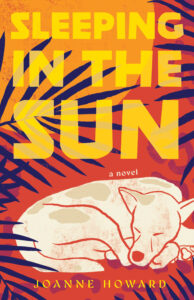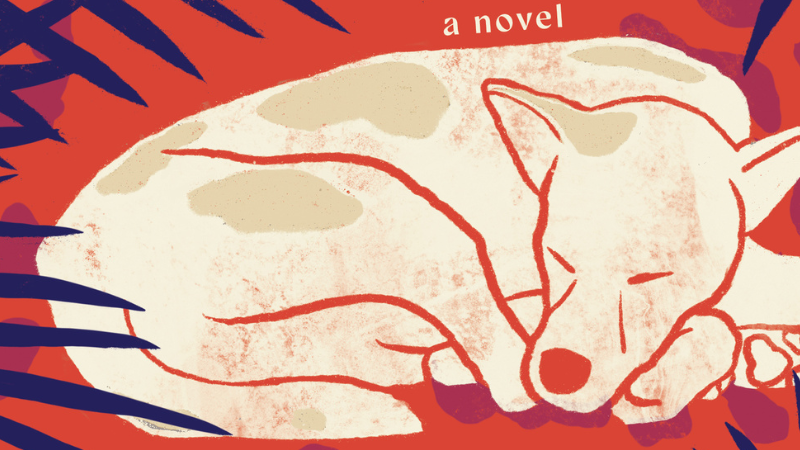Loyalty and identity go to war in historical fiction debut inspired by author’s true family history
 Santa Rosa, CA– Whisk away to India in this compulsive novel of two unlikely people who discover hidden truths about a high-ranking British official set against the backdrop of colonial rule. Sleeping in the Sun (October 22, 2024, She Writes Press) transports readers to the past where a young American and his Indian servant must face the reality behind a faithful family friend and the consequences of knowing this truth. A must-read for fans of The Poisonwood Bible and The Inheritance of Loss.
Santa Rosa, CA– Whisk away to India in this compulsive novel of two unlikely people who discover hidden truths about a high-ranking British official set against the backdrop of colonial rule. Sleeping in the Sun (October 22, 2024, She Writes Press) transports readers to the past where a young American and his Indian servant must face the reality behind a faithful family friend and the consequences of knowing this truth. A must-read for fans of The Poisonwood Bible and The Inheritance of Loss.
While originally a part of her MFA thesis at Pacific University, this explosive novel dives into the author’s own grandfather’s story of living as a Christian missionary in British India. Through her extensive research on the British Raj, the work of her grandfather’s missionary group, the effects of colonization in India, and the rich descriptions of India in the early 20th century, Joanne’s story weaves a cinematic tale of discrimination and privilege showcasing the enduring impact of imperialism and the spark of revolution.
In the last years of the British Raj, an American missionary family stays on in Midnapore, India. Though the Hintons enjoy white privileges, they have never been accepted by British society and instead run a boarding house on the outskirts of town where wayward native Indians come to find relief. Young Gene Hinton can’t get out from under the thumb of his three older brothers, and the only person he can really relate to is Arthur, his family’s Indian servant. But when Uncle Ellis, a high-ranking British judge, suddenly arrives and announces he’ll be staying indefinitely in their humble house, far from his prestigious post in Himalayan foothills, life as Gene knows it is interrupted. While his brothers are excited at the judge’s arrival, he is skeptical as to why this important man is hiding out with them in the backwaters of Bengal.
Also skeptical is Arthur. Then an Indian woman appears on their doorstep—and, after growing close to her, he learns the sinister truth about the judge. Torn between a family that has provided him shelter, work, and purpose his whole life and the escalating outrage of his countrymen, Arthur must decide where his loyalties lie—and the Hintons must decide if they can still call India home.
“Sleeping in the Sun”
Joanne Howard | October 22, 2024 | She Writes Press | Historical Fiction
Paperback | 9781647427986 | $17.99
 Joanne Howard is an Asian American writer from California. She holds an MFA in writing from Pacific University. Her poetry received an honorable mention from Stanford University’s 2019 Paul Kalanithi Writing Award. Her fiction has been published in The Catalyst by UC Santa Barbara, The Metaworker Literary Magazine and the Marin Independent Journal and her nonfiction has been published in Another New Calligraphy and The Santa Barbara Independent. She lives in Santa Rosa, CA. Find out more at her website.
Joanne Howard is an Asian American writer from California. She holds an MFA in writing from Pacific University. Her poetry received an honorable mention from Stanford University’s 2019 Paul Kalanithi Writing Award. Her fiction has been published in The Catalyst by UC Santa Barbara, The Metaworker Literary Magazine and the Marin Independent Journal and her nonfiction has been published in Another New Calligraphy and The Santa Barbara Independent. She lives in Santa Rosa, CA. Find out more at her website.
Follow Joanne Howard on social media:
Instagram: @joannesbooks
Advanced praise for Sleeping in the Sun
“Sleeping in the Sun is a novel impossible to put down. A cinematic study of imperialism and the scars it has left. An outstanding debut.”—Willy Vlautin, author of The Night Always Comes and The Motel Life
“With meticulous attention to detail, Howard paints a vivid portrait of colonial India through the perspectives of an American family and their Indian servant, skillfully blending historical events with familial moments. Through the eyes of her characters, readers are transported to a world where identities are questioned and the true meaning of home is explored. As the narrative builds toward an explosive climax, Sleeping in the Sun becomes more than just a story—it is a poignant exploration of the human experience that resonates far beyond the last chapter.”—Veena Rao, author of Purple Lotus
“Joanne Howard’s Sleeping in the Sun is a quiet and deeply moving novel, a story of a nation trying to reclaim itself, while one man and one boy try to discover who they are themselves. Howard shows us all this not by looking at the big picture, but at the individuals caught at the center of their sometimes conflicting, sometimes heartbreaking goals. A beautiful story, beautifully revealed.”—Pete Fromm, author of Indian Creek Chronicles
“This is at once a gripping page-turner and book to savor and admire. It will light up your imagination and endure in your mind alongside all the memories from your real life. I was sad to see it end but delighted to welcome this impressive new voice into American literature. Joanne Howard is a writer to watch.”—Valerie Laken, author of Dream House and Separate Kingdoms
“Exquisitely rendered and highly nuanced, Joanne Howard’s debut novel, Sleeping in the Sun, immerses readers into the world of young American Gene Hinton as he comes of age in rural India in the 1930s. Battling inner and outer demons, Gene forms a unique bond with the Hintons’ Indian servant, Arthur, and gains an eye into life’s underbelly. Sumptuously written and detailed, this novel is destined to become a classic. A triumph!”—Ashley E. Sweeney, author of Eliza Waite
In an interview, Joanne Howard can discuss:
- How Joanne uses her own family’s history as Christian missionaries in India to provide setting for the book
- How colonialism, privilege, and imperialism impact the Indian society for generations
- How Christianity plays a major role in the Hinton’s lives and its effects on the people around them
- Why Joanne chose to write a story outside of own lived cultural experiences
- How Joanne researched aspects of the setting and society to ensure a historically accurate story
An Interview with Joanne Howard
1. What message do you hope to convey about colonialism and identity through the Hinton family’s story and interactions?
It’s definitely not a favorable portrait of colonialism; even though the main character, Gene, is a young boy with a naive view of the world, I didn’t want it to come off as unserious or easy going on the British Raj. But I also didn’t want history to be front and center to the book, but rather serve as a backdrop for the human story going on between the Hintons, Arthur, and the judge. Even though the novel is influenced by these huge forces of historical events, what I still hope readers take away is the detail of the everyday.
2. How does the Hintons’ family story relate/differ from your own family’s history?
My grandfather was born and raised in India, and his first language was Bengali, but for the rest of his life he never returned to India because he knew it would have changed so much, and the India of his youth no longer existed. So this idea of “is India home?” I think was a question in real life for my grandfather and for the Hintons.
3. How does your background as an Asian-American writer influence your portrayal of cross-cultural interactions and historical events in your novel
I was able to draw from my own experience as a mixed-race Asian American to inspire this dual reality that the Hintons occupy, and to a lesser extent the space Arthur occupies as a converted Christian Indian who both works for the Hintons but wants to stay connected to his Indian identity. The novel’s setting where a range of racial identities all interact with each other is a huge aspect of the story, and I’m glad I could bring my personal experience to the work.
4. What are some of the most significant historical and cultural details that you included in the novel to bring the British Raj setting in India to life?
When it comes to bringing the setting to life, it’s all in the little details, from the hand-cranked ceiling fans (punkahs) to the nightly ritual of shaking out the bedding for any critters, all things that I found in our family archives. I also loved including a scene at the Gope Gargh (The Old Gope as the Hintons call it), which is now an ecological park that preserves the ruins of an old fort from the Mahabharata. I visited this park on my trip to India and was inspired by the mythical atmosphere and the way the forest had grown over the ruins of ancient civilization.
5. What did your research process look like when building the world of Sleeping in the Sun?
For Arthur’s character, I just tried to expose myself to as many literary works that matched his background and the time period, and two books especially inspired his character: The Autobiography of an Unknown Indian by Nirad C. Chaudhuri and Pather Panchali by Bibhutibhushan Bandyopadhyay. And lastly, I took a 3-week trip to India in 2018 to visit some of the locations that appear in the novel.
6. What advice would you give to a writer who is trying to write beyond their own lived experiences? What is important to remember regarding sensitivity in writing?
Do your research, write with respect, and work with a sensitivity reader who can catch any of your blindspots. Understand that you will never be able to relate 100% to the identity or community you are writing about, and that’s ok. If you have done it well, the work should stand on its own merit, regardless of who the author is.
Download press kit and photos

A former award-winning journalist with national exposure, Marissa now oversees the day-to-day operation of the Books Forward author branding and book marketing firm, along with our indie publishing support sister company Books Fluent.
Born and bred in Louisiana, currently living in New Orleans, she has lived and developed a strong base for our company and authors in Chicago and Nashville. Her journalism work has appeared in USA Today, National Geographic and other major publications. She is now interviewed by media on best practices for book marketing.


